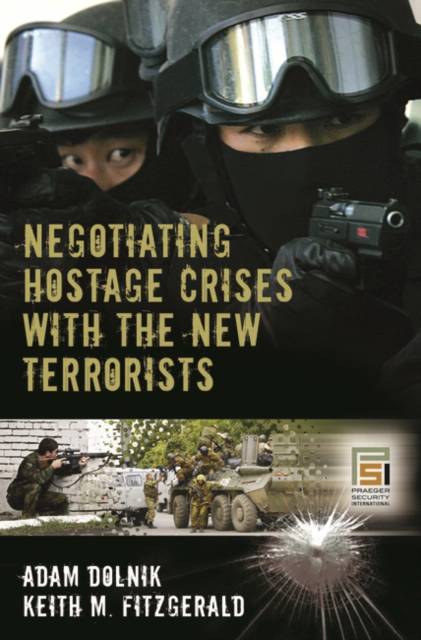
- Retrait gratuit dans votre magasin Club
- 7.000.000 titres dans notre catalogue
- Payer en toute sécurité
- Toujours un magasin près de chez vous
- Retrait gratuit dans votre magasin Club
- 7.000.0000 titres dans notre catalogue
- Payer en toute sécurité
- Toujours un magasin près de chez vous
Description
This book is about the role of negotiation in resolving terrorist barricade hostage crises. What lessons can be learned from past deadly incidents so that crisis negotiators and decision makers can act with greater effectiveness in the future? What are the lessons the terrorists are learning and how will they affect the dynamics of future incidents? What can we learn about the terrorist threat, and about preventing the escalation of future terrorist hostage-taking situations?
While there are many trained crisis negotiators around the world, almost none of them has ever had contact with a terrorist hostage-taking incident. Further, the entire training program of most hostage negotiators focuses on resolving crises that do not take into consideration issues such as ideology, religion, or the differing sets of strategic objectives and mindsets of ideological hostage takers. This is especially true with regard to the terrorists of the new breed, who have become less discriminate, more lethal, and more willing to execute hostages and die during the incident. Further, many of the paradigms and presumptions upon which the contemporary practice of crisis negotiation is based do not reflect the reality of the new terrorists.
Spécifications
Parties prenantes
- Auteur(s) :
- Editeur:
Contenu
- Nombre de pages :
- 228
- Langue:
- Anglais
- Collection :
Caractéristiques
- EAN:
- 9780275997489
- Date de parution :
- 30-11-07
- Format:
- Livre relié
- Format numérique:
- Ongenaaid / garenloos gebonden
- Dimensions :
- 163 mm x 236 mm
- Poids :
- 498 g

Les avis
Nous publions uniquement les avis qui respectent les conditions requises. Consultez nos conditions pour les avis.






